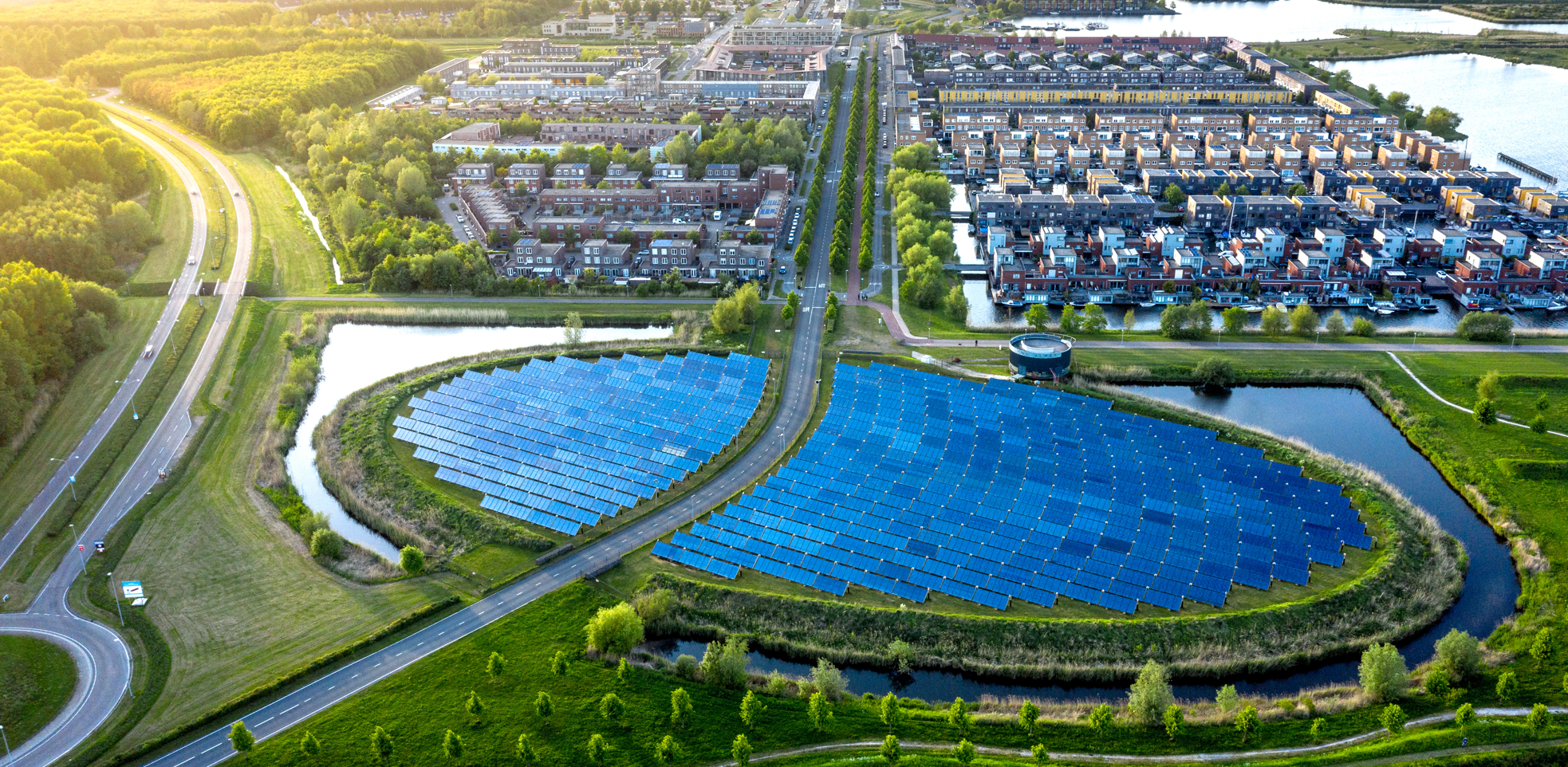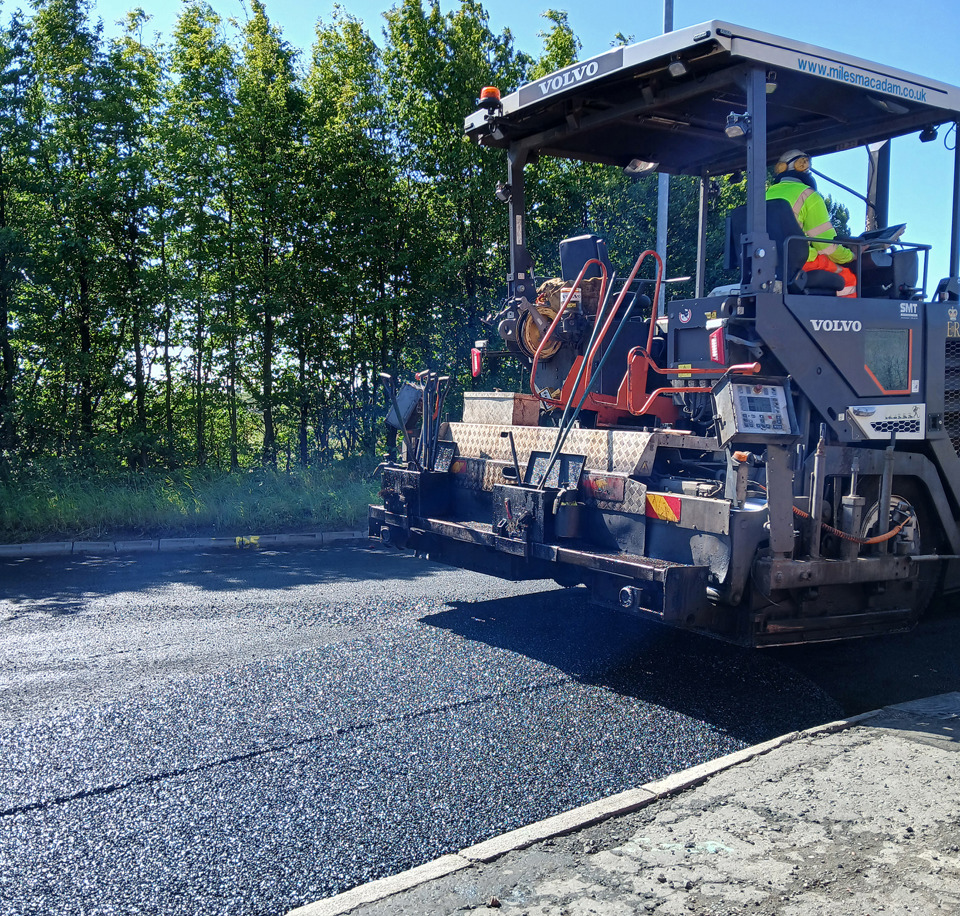Tagged in:

Paving the Way to a Greener Future: Tips to Get Your Low-Carbon Material Innovation Noticed
Joe Kimberley, Innovation Manager at Colas and PM for our South Campus, shares his advice for SMEs and innovators to gain market traction for their low-carbon solutions.

In the ever-evolving landscape of infrastructure development, the call for sustainability has never been louder. As our world grapples with the urgent need to combat climate change, the highways management sector finds itself at a crossroads. It's time for materials providers in this sector to embrace decarbonised materials, and here's how you can lead the charge.
1. Demonstrate added value
Standing out in a crowded marketplace is no easy feat, especially when it comes to the highly competitive world of road materials. However, if you are a materials provider looking to introduce ‘greener’ materials into the sector, it is crucial to start by creating a compelling narrative around your offerings.
First and foremost, highlight the environmental benefits of your materials. Showcase how they contribute to reducing carbon emissions, which aligns perfectly with global initiatives to combat climate change. Demonstrate a commitment to sustainability, and emphasise how your materials can help highway projects meet increasingly stringent environmental regulations.
2. Focus on decarbonisation of materials
The necessity to decarbonise our highways materials in the sector cannot be overstated. Roads and highways are essential components of modern infrastructure, but their construction and maintenance have traditionally been resource-intensive and carbon-heavy. By shifting towards decarbonised materials, we can make substantial strides towards reducing the carbon footprint of our transportation networks.
The production of traditional construction materials, such as concrete and asphalt, generates substantial greenhouse gas emissions. Decarbonised materials, on the other hand, offer a greener alternative by incorporating recycled materials, utilising low-carbon production processes, and even exploring innovative materials like carbon-negative cement. This shift towards sustainability not only addresses climate concerns but also enhances the reputation of the highways sector as a responsible steward of the environment.
3. Cut through the noise
Breaking through the noise and capturing the attention of highway authorities and decision-makers can be challenging. To achieve this, materials providers must focus on education and advocacy. Develop comprehensive materials that clearly explain the benefits of decarbonised materials, addressing any potential concerns or misconceptions.
Collaborate with industry associations, environmental organisations, and research institutions to bolster your credibility and amplify your message. Use case studies and real-world examples to showcase the successful implementation of your materials in highway projects. Transparency and data-driven evidence are your allies in proving the efficacy of decarbonised materials.
4. Join our programme
Participating in programmes like our Centre of Excellence could be a game-changer for materials providers. Our programme provides a platform to rigorously test and validate the performance and sustainability of your materials. Local authorities and highway agencies often rely on these independent assessments to make informed decisions about material selection.
By joining our programme, you not only gain credibility but also access to a network of industry stakeholders and decision-makers. We help bridge the gap between materials providers and local authorities by providing a trusted platform for showcasing the viability of your decarbonised materials. This can significantly expedite the adoption process and ensure your materials receive the recognition they deserve.
The highways management sector stands at the forefront of a sustainable revolution. Decarbonised materials are the future, and materials providers have a vital role to play in ushering in this era of change. By promoting the environmental benefits, engaging in education and advocacy, and leveraging programmes like ours, you can make a significant impact in reducing the carbon footprint of our transportation infrastructure. Together, we can pave the way to a greener, more sustainable future for our highways and our planet.
Other Articles
View all Articles View Article
View Article
Q3 Reflection - Quarterly Newsletter 2025
Read our quarterly newsletter below, with updates from recent trials, events and local authority best practice.
 View Article
View Article
STEM Workshops with Routes to Work
Celebrating Green Careers Week with STEM Workshops at Routes to Work
 View Article
View Article
Q2 Reflection - Quarterly Newsletter 2025
Read our quarterly newsletter below, with updates from recent trials, events and local authority best practice.

Comments
Good Afternoon - I'd be interested in learning more and hopefully joining your programme for 'Paving the Way to a Greener Future'. We are currently evolving our own brand as a Highway and Maintenance Specialist, with a headline "Delivering Carbon and Cost Savings". We will do this by providing resilient solutions and innovative services. We will have 4 key pillars - Services, Knowledge, Innovation and Sustainability. All the best, Craig, Technical Director, Foster Contracting (07355 679023).